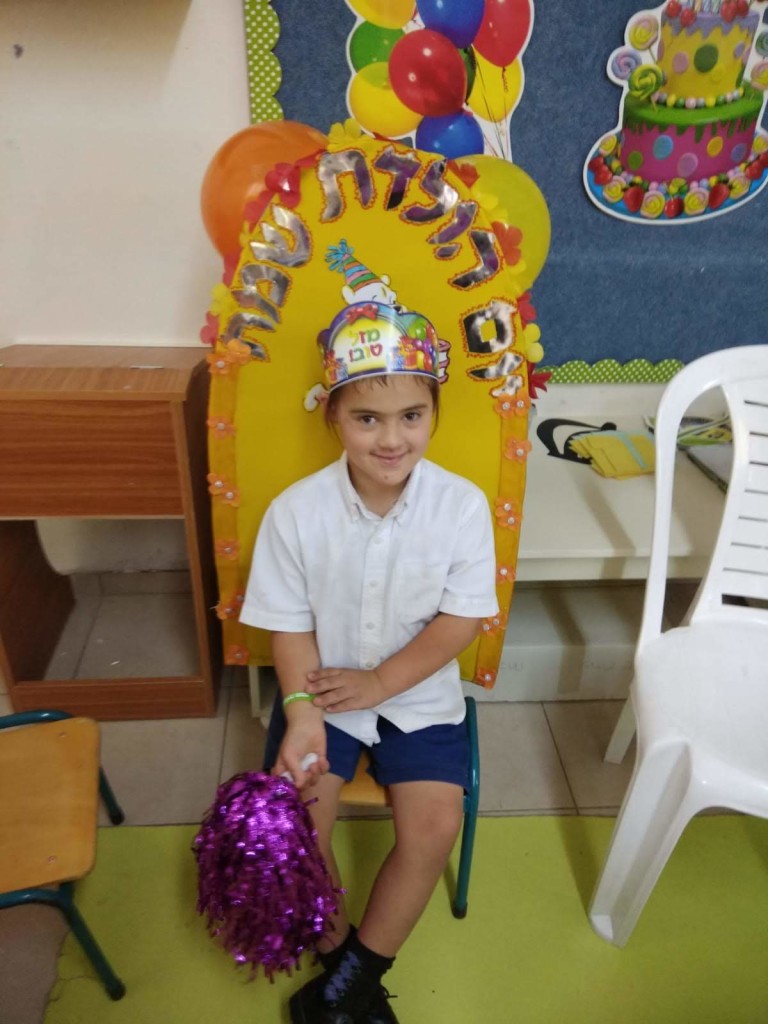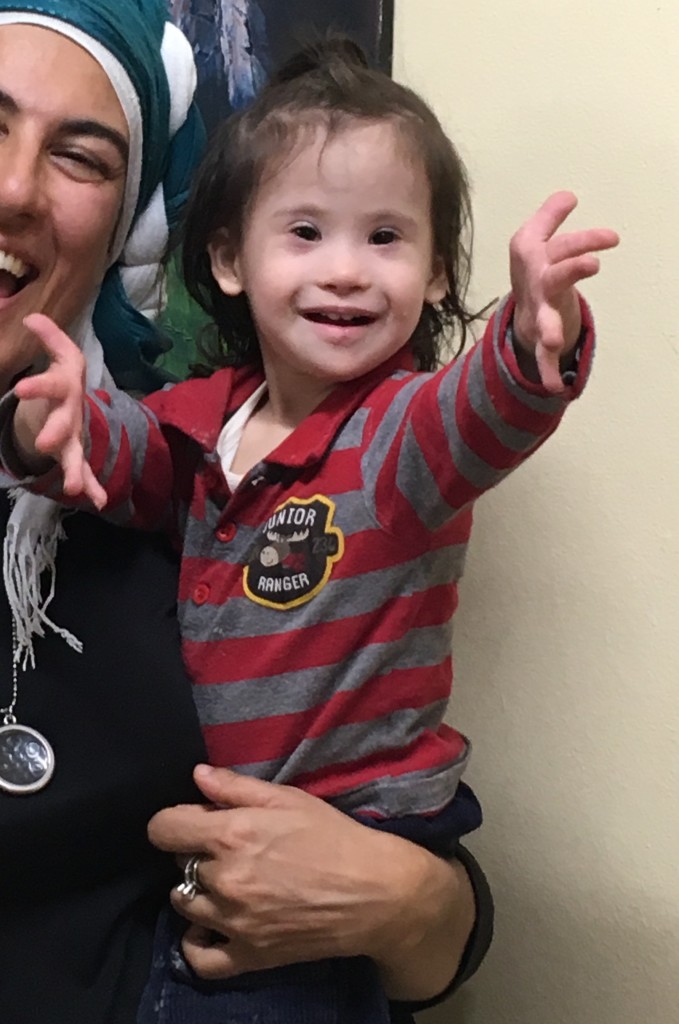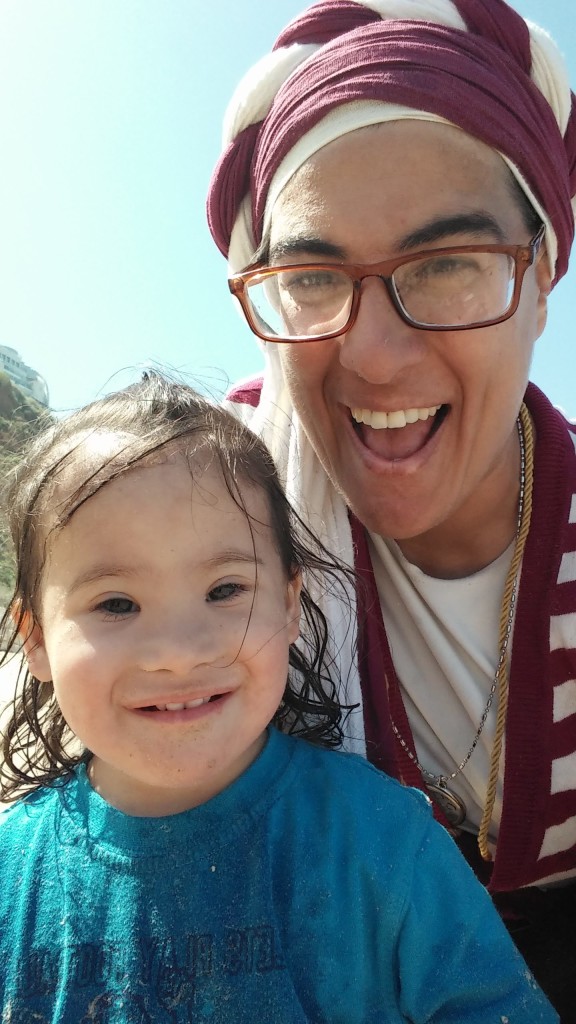The summer is a busy time of year for our family!
This is a little roundup of what’s going on around here.
A couple of weeks ago one son turned 17, our first married couple celebrated their two year anniversary, a day later my husband and I celebrated our 27th anniversary, two days ago was my oldest granddaughter’s first birthday, yesterday was another son’s seventh birthday, and tomorrow my oldest son will turn 26! I’m so thankful for it all.
**************
It’s our first official week of vacation and it’s so nice to finally be free of most of the external schedules! I had a mini debate with myself about sending Yirmi (now 7!) to the school sponsored summer camp program – there was a ridiculously small fee and the bus there and back was available for no extra charge. Even though the program would finish at 12:45 daily and it would have been fun, I opted to keep him home for the entire summer.
It’s so nice not to have to get him ready first thing in the morning, sending him off when he’s fresh and getting him back after 4 pm when he’s exhausted and out of sort. He’s a great person to spend time with. And it feels like vacation to me not to have to get going so early in the morning!
*****************
It seemed that I wouldn’t be allowed to take Rafael (2.5) out of his daycare program for the summer. Don’t ask. It has been one big headache and I continually just turn this over to G-d and ask for His help in gracefully navigating the system. However, this week a therapist gave me a heads up that independent of the administration’s threat not to allow him to come back next year, the therapists don’t think this is a supportive environment for him and suggest finding a different place.
Now that I know he won’t be continuing at this daycare for the coming year, if I can cut down his summer attendance they can’t threaten me with kicking him out of the program. It’s the silver lining of the whole daycare situation right now.
What I’d really like to do is keep him home for the coming year, and that would unquestionably be the best thing for him. I’m sure we would see dramatic improvements in every area. However, as a foster parent I don’t get to make that choice. The only option I’m left with is an intensive therapeutic program.
There are many lovely things about that program and if I’m forced to send him there I’ll focus on those things, but I have to tell you honestly that my heart is clutching at all of this. I’m being told he’s not progressing fast enough and the answer is more therapy. But he doesn’t need more therapy, what he needs is more attachment.
*****************
Last week I attended a two day beach festival for women in Tiberias on the edge of the Sea of Galilee, and it was wonderful! So relaxing and maybe most important, I had extended quiet to reflect on some things that are important to me and discuss them with others. From there, I spent a lot of time considering how to integrate more of those things into my life.
The more I have the courage to ask myself what I really want my life to look and feel like, the more clarity I have and then I can take actions to move closer to that goal. It’s extremely empowering.
**************************
On my bucket list for the summer are getting hearing aids for Yirmi. It’s taken a year to get to the point that he’s been approved for the hearing aids, and hopefully in the next month we can get all the necessary appointments for this taken care of. He’s done amazingly in his first year of school, and think how much more he’ll gain next year when he can clearly hear what is being said!
Another important item that I want to take care of during the relaxed summer months, is to begin the process of palate expansion. It can be uncomfortable and make speech less clear, so I opted not to do this during the school year. Yirmi works hard enough to keep up and do all that is asked of him without piling on another challenge during the school year!
*******************
In other news, my 18 year old daughter applied to a seminary that seemed to be a perfect fit for her, and wasn’t accepted. When someone contacted the administration to find out why, they said that due to her homeschooling background, they are concerned she won’t be able to get to classes on time and manage the schedule.
That is so completely ludicrous for someone who has been managing her own schedule for a long time (no parents to wake her up and remind her to do homework); she has much more self-discipline than the average high school graduate. It was very frustrating that they didn’t bring up this concern in the interview and give her a chance to respond. Instead, they made an assumption based on whatever their ideas about homeschooling are. (Clearly not very positive, as they said, “We aren’t like your family who does whatever they want – we act in accordance to rabbinical guidance.” This is an example of when I have to set my ego aside and focus on supporting what my kids need. )
**************
My seventeen year old son has decided he wants to leave high school early and go directly to a post high school yeshiva, where he will be able to pursue full-time Torah study. I’ve been somewhat on the fence about this, and despite his repeated comments to the effect that I’m not supporting him, I’m actually very open to the possibility. However, I want to know that he will be attending a yeshiva that will be a good match for him, and finding that match is still up in the air.
********************
Oh, have I told you that I’m going to continue homeschooling ds10 and ds11 for the coming year? I’ve been meaning to do a post on that for many weeks. After feeling very burnt out last summer, I decided this school year was going to be our last year of homeschooling. But as time went on and I regrouped, I found myself remembering what I love about homeschooling and how it continues to benefit them. Prior to that, I could only see all that I wasn’t doing and was focusing on that.
****************
Some little random odds and ends of summer stuff…
I took three of the boys to an archeological dig, where we uncovered the original mosaic floors from a 1500 year old church – educational and fun. It was a great experience, and I’d love to share pics but they don’t want the public to see the finds yet. (They’ll be officially introduced in the fall.)
We’ve been continuing exploring the closest national park and in addition to new playgrounds. Yesterday we had a great time at a birthday party for my granddaughter in Jerusalem.
The pool is getting lots of use. Even Rafael (2), who refuses to go in, is enjoying it – we hung the bucket swing over the pool so he can swing and and dangle his feet in the water while the older boys are playing – he loves it!
And that’s the update for now!
Avivah







